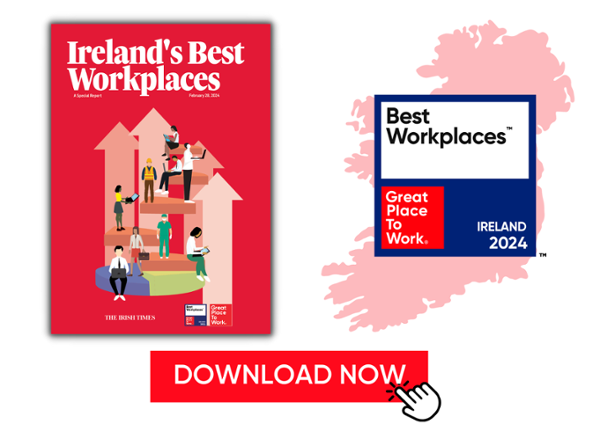At its core, the Great Place to Work® model is about trust. It is the cornerstone of its philosophy and the foundation upon which great cultures are built. This is not just our position, it is a well-researched topic with hundreds, if not thousands of academic papers published concerning its value to organisational success.
Within this body of research, the evidence is often so compelling that it is common for researchers to conclude that trust should be a primary organisational value. It is also found that behaviours that promote trust should be rewarded and that organisations should commit to creating time for trust-building.
The breadth of areas in which trust has been found to be a benefit gives us a good indication as to why such conclusions are often drawn, as illustrated below by drawing from a range of academic papers:
- Project teams that report a high level of trust have been found to perform significantly better against a range of outcomes, such as reduced errors, increased productivity, product improvements and customer satisfaction (1)
- Displaying vulnerability is essential to trust-building, leaders who demonstrate vulnerability by discussing issues they have navigated in work roles are significantly more likely to resolve issues in difficult conversations with employees (2)
- Trust between employees and direct supervisor has been found to moderate the risk of burnout in high pressure, emotionally taxing environments (3)
- Trust between leaders and their team members has been found to be a primary factor in determining the effectiveness of remote working arrangements (4)
- Learning outcomes in organisational virtual learning & development delivery are greatly enhanced where trust exists between instructor and attendees (5)
Were you to attend a seminar, where the speaker informed you that their new product, if applied consistently has a proven track record of improving group cohesion, productivity, innovation and customer satisfaction, your interest would likely be piqued.
If they went on to demonstrate the utility of their product to navigating difficult performance conversations, reduce occurrences of burnout, improve learning outcomes, and facilitate successful remote work, that product would surely be integrated into your organisation in quick order.
These benefits and more are available to your organisation already, waiting to be leveraged. Whether intentionally developed or not, trust is playing a key role in your organisation. We measure that trust through our Trust Index Survey and help you transform data into tangible, evidence-based actions.
Read the next articles of the Trust Series below:


Sources:
1. Erdem, F., & Ozen, J. (2003). Cognitive and affective dimensions of trust in developing team performance. Team Performance Management: An International Journal
2. Meyer, F., Le Fevre, D. M., & Robinson, V. M. (2017). How leaders communicate their vulnerability: Implications for trust building. International Journal of Educational Management
3. Lambert, E. G., Hogan, N. L., Barton-Bellessa, S. M., & Jiang, S. (2012). Examining the relationship between supervisor and management trust and job burnout among correctional staff. Criminal Justice and Behavior, 39(7), 938-957.
4. Grant, C. A., Wallace, L. M., & Spurgeon, P. C. (2013). An exploration of the psychological factors affecting remote e‐worker's job effectiveness, well‐being and work‐life balance. Employee Relations.
5. Short, H. (2014). A critical evaluation of the contribution of trust to effective T echnology E nhanced L earning in the workplace: A literature review. British Journal of Educational Technology, 45(6), 1014-1022

More resources on trust building:
About Great Place to Work®
Great Place to Work® is the global authority on workplace culture. We help organisations quantify their culture and produce better business results by creating a high-trust work experience for all employees. We recognise Great Place to Work-Certified™ companies and the Best Workplaces™ in more than 60 countries. To join the thousands of companies that have committed to building high-trust company cultures that help them attract, retain and take care of their people, contact us about getting Certified today.
